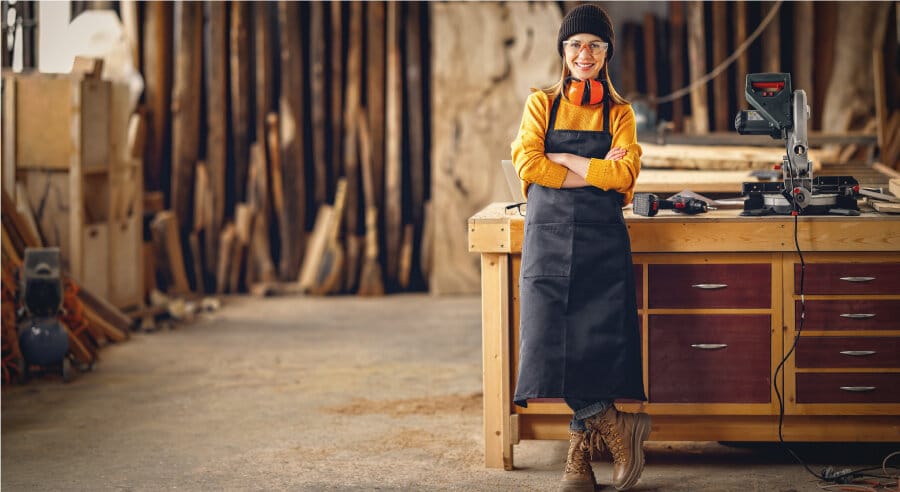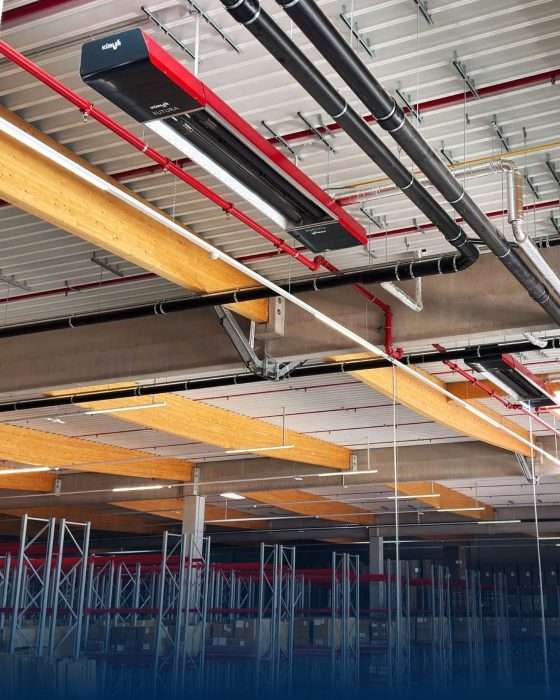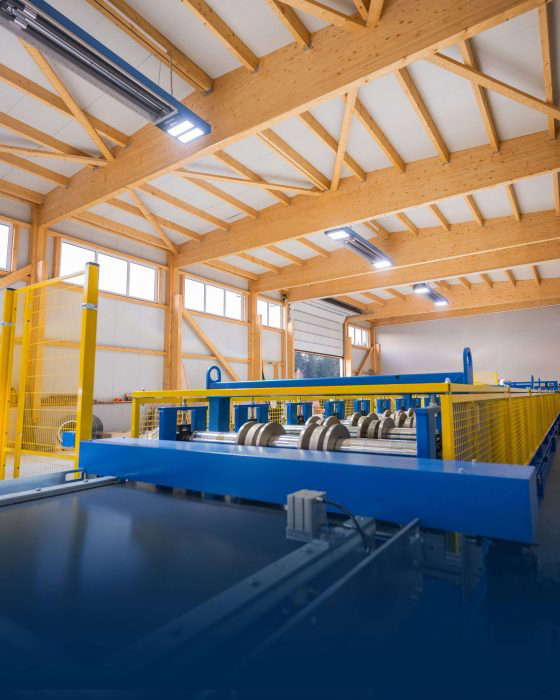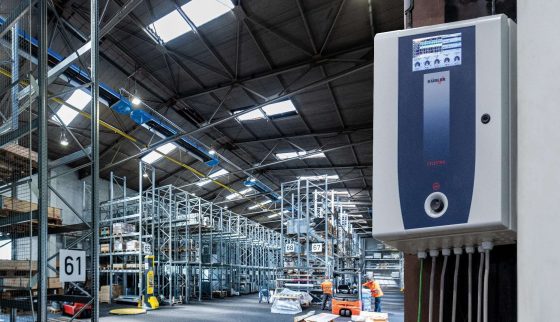Workshop heating - what you should look out for when choosing

First things first: The right workshop heating system should match your requirements
If you search for workshop heating in search engines, you will find a variety of technologies. These include fan heaters, cannon heaters, electric heaters and free-standing radiant heaters as well as infrared heaters. However, before you take a closer look at the technologies, you should first be clear about your requirements. The following questions can help you with this:
Building
- What is the height, length and width of the hall building?
- What is the insulation condition?
- What is the hall atmosphere like (e.g. dusty, damp, draughty)?
- How many windows and doors does the hall have?
- Are there adjoining offices
Utilization profile
- How is the hall used?
- At what times - are there working shifts?
- Are there different usage zones?
Energy source
- What energy sources are available?
Further requirements
- What goals do you want to achieve with the heating?
- Economic efficiency
- High thermal comfort
- Flexibility
- Future security
- others?
Once you have answered these questions for yourself, some heating systems may no longer be an option and the choice will become more manageable for you. In any case, you can provide your heating engineer with a clear requirements profile, which he can use to recommend the right heating system for your workshop.
Bring a clean and draught-free working environment into the workshop
Particularly for dust-intensive work, as is often the case in joineries, for example, you should make sure that your new workshop heating system does not contribute to additional air pollution. But clean air and a draught-free indoor climate are also important in other workshop operations, if only so that your employees feel comfortable and can work productively. You should therefore opt for a system that does not cause draughts that could stir up dust. This is where infrared heaters of the type Dark radiator particularly well, because they warm - similar to the natural The sun's heating principle - by infrared rays and not by heated air. And they have another decisive advantage for a good indoor climate, because they have direct exhaust gas routing, i.e. the waste heat is routed to the outside in a controlled manner without polluting the hall atmosphere.
Pay attention to high energy efficiency when it comes to workshop heating - then the environment & your bank account will benefit
In the heating sector in particular, legislation is placing ever higher demands on the technologies used. But it is certainly also important to you personally to keep the expensive use of resources as low as possible. You should therefore pay particular attention to the consumption values of your new Workshop heating. Seen over the life cycle, high energy consumption is not only expensive for the environment, it is also an unnecessary burden on your budget. Infrared systems specially developed for hall heating generally consume 30 - 40 % less than conventional hot air systems. However, these factors also make a decisive contribution to the cost-effectiveness of heating in your workshop:
- the exact design of the heating system based on the usage profile (see above)
- Controlled direct flue gas routing
- the integration of other energies such as residual heat and
- Good and transparent control
Benefit from the possibilities of intelligent control systems
Today, modern heating systems can be controlled flexibly and according to demand. For example, you can define production areas and storage areas in the workshop as different heating zones and heat them individually. With dark radiators, you can heat storage areas in your hall at a lower temperature than the production area - this can save a lot of energy costs. Fluctuations in the outside temperature, day and night cycles, additional shifts or public holidays can also be taken into account with intelligent control systems and heating operation can be optimized accordingly. The display or a PC gives users insight into the performance and important parameters of the system, such as operating time and energy consumption, at any time. Smart add-on modules automatically ensure that energy is not wasted unnecessarily in areas where workshop doors are open. This can be very lucrative, especially in automotive workshops with high air exchange rates. Control systems are important today for optimizing the operation of workshop heating systems—they play a crucial role in saving energy, CO₂, and energy costs.
Plan for future changes to your workshop heating system
Workshop heating systems are an investment in the future. Provided you have opted for a quality product. Then the life cycle can be as long as 20 years. A lot can happen during this time. It is therefore important that your new workshop heating system gives you as many options as possible. This includes important points such as
- the flexibility to relocate, extend or remotely control your heating system at any time
- keep the ceiling as open as possible, e.g. for cranes or lighting changes
- keep the hall floor as clear as possible, e.g. for changes to machine installations
- Gradually use more renewable energy sources (e.g. green gases) as soon as they are available
The last point in particular must be carefully considered, as compromising between climate requirements and usage profile can be costly. Technologies that use only renewable energies are always hot water-based and therefore relatively slow to respond. If you want your workshop heating to be quick and flexible to control, gas-fired infrared heating technologies are recommended. Apart from the fact that they can usually be powered by biogas, methane is also increasingly becoming a green energy source, for example through the addition of hydrogen H₂.
-
The German government is sticking to its goal of climate neutrality by 2045. The GMG is to come into force on 01.07.2026. The EU Buildings Directive (EPBD) will be implemented 1:1, making full use of national leeway. The requirements of the Heating Act (GEG §§ 71-71p) will be deleted. The obligation to operate new heating systems with at least 65 % renewable energy will no longer apply to new and existing buildings. Technology openness: Owners [...]
-
Germany has a huge number of buildings whose heating systems waste energy every day and produce far too much CO₂. With regard to the use of renewable energies and modern technologies, it is by no means just an old stock that urgently needs to be refurbished. Many newly built halls are also equipped with outdated [...]
-
Mr. Kübler, your company produces heating systems for halls. These only make up a small proportion of all buildings in Germany. Why is it nevertheless important to save as much energy as possible in this area? That's right, halls only make up around 1.5 percent of all buildings in Germany, so most people don't notice them. Even [...]
-
Christmas is once again approaching surprisingly quickly - and, unfortunately, one or two challenges are on the horizon. From 3G and 2G plus to the next increases in energy prices. Congratulations if you have already converted your hall heating to an economical system from KÜBLER. This is a really good decision in many respects.





